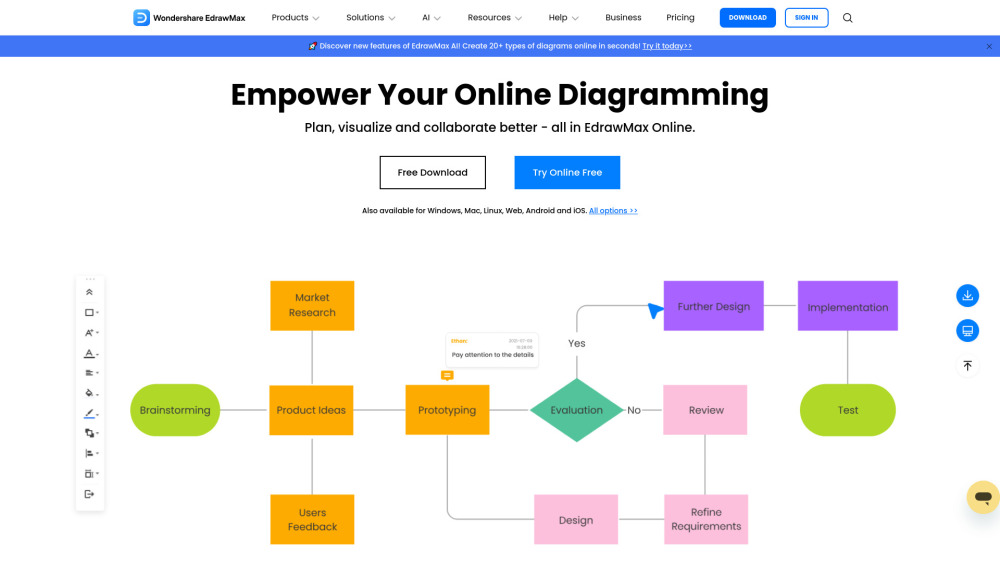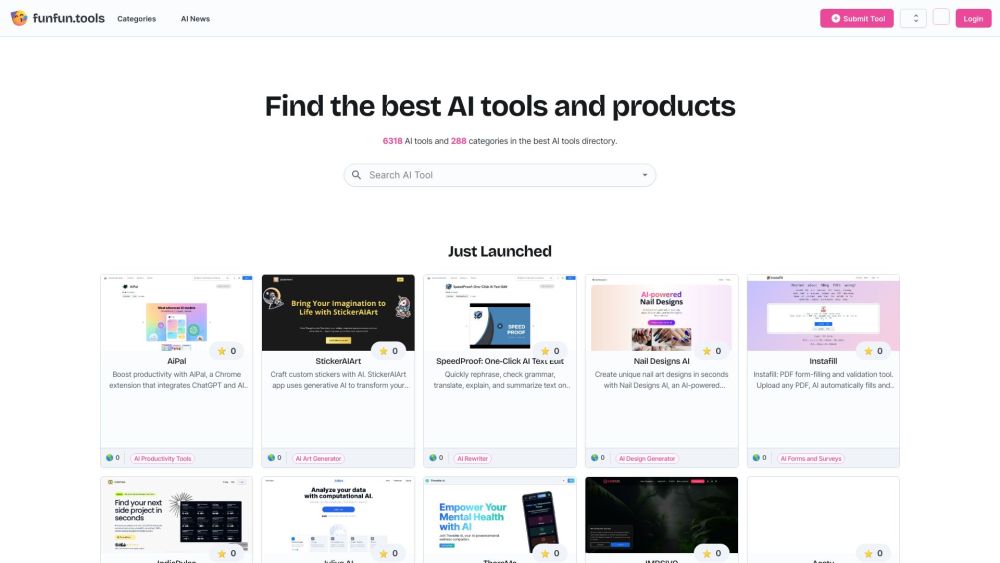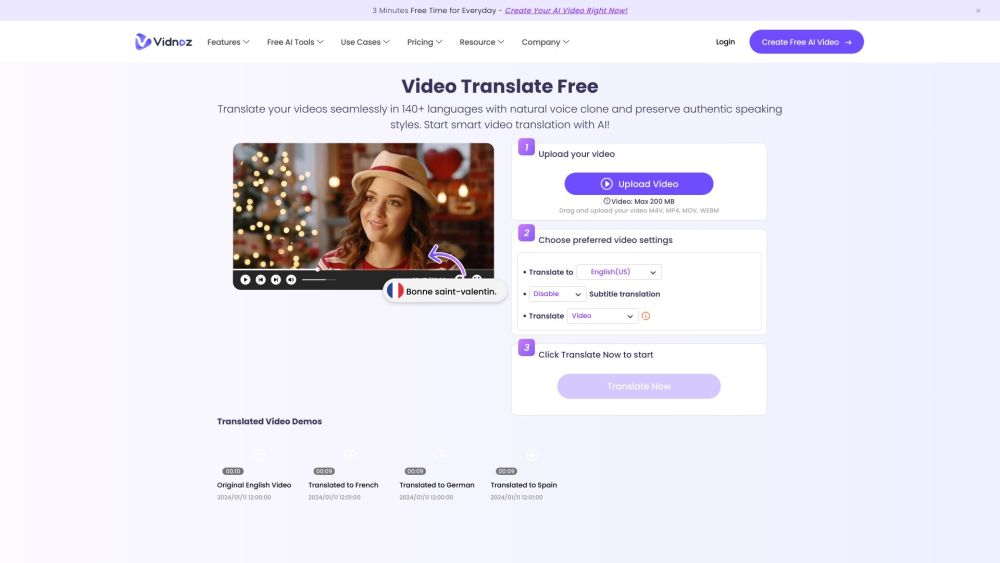Congress Reportedly Restricts Staff Use of AI Models Such as ChatGPT
Most people like

Create Stunning Visuals with Our Online Diagram Maker
Elevate your projects and presentations with our intuitive online diagram maker. Design professional-quality visuals effortlessly, using customizable templates and easy-to-navigate tools. Whether you need flowcharts, mind maps, or organizational charts, our platform empowers you to communicate your ideas clearly and effectively. Start crafting impressive diagrams today!

Are you pressed for time but need to deliver captivating presentations? With our innovative tools, you can craft stunning presentations in just minutes. Say goodbye to long hours of preparation and hello to dynamic, professional slides that will capture your audience's attention. Discover how easy it is to transform your ideas into visually appealing presentations without sacrificing quality.

Explore the best AI tools available today! Unlock the potential of artificial intelligence by leveraging cutting-edge technology to enhance your projects. Whether you're a business owner, a developer, or an enthusiast, this curated list will guide you through the most effective AI solutions to streamline your workflow and boost productivity. Dive in to find the perfect tool for your needs!

Translate Videos into 140+ Languages in Just 3 Simple Steps!
Unlock the global potential of your content with our easy-to-follow process for translating videos into over 140 languages. Whether you're aiming to reach a broader audience or enhance audience engagement, our streamlined approach ensures that your messages resonate with viewers around the world. Say goodbye to language barriers and welcome a more connected, multilingual audience!
Find AI tools in YBX

